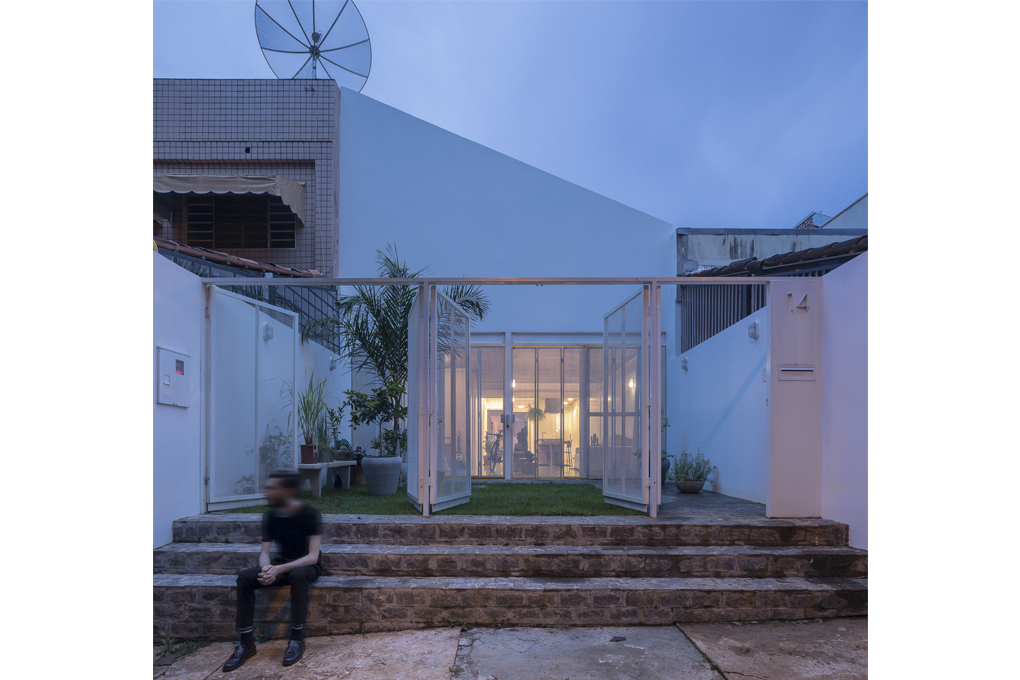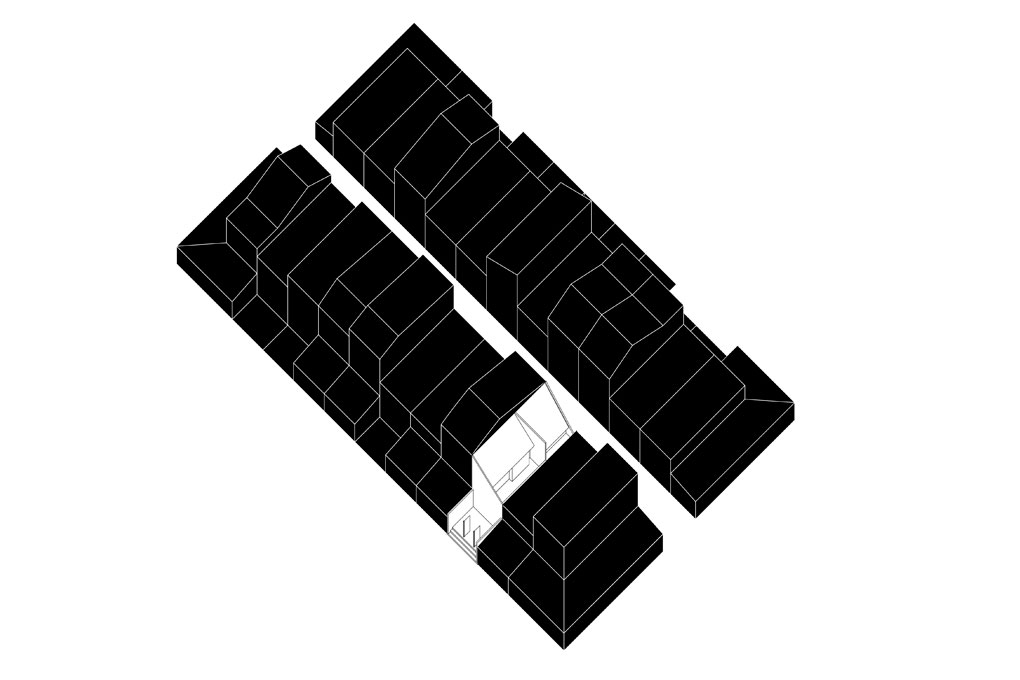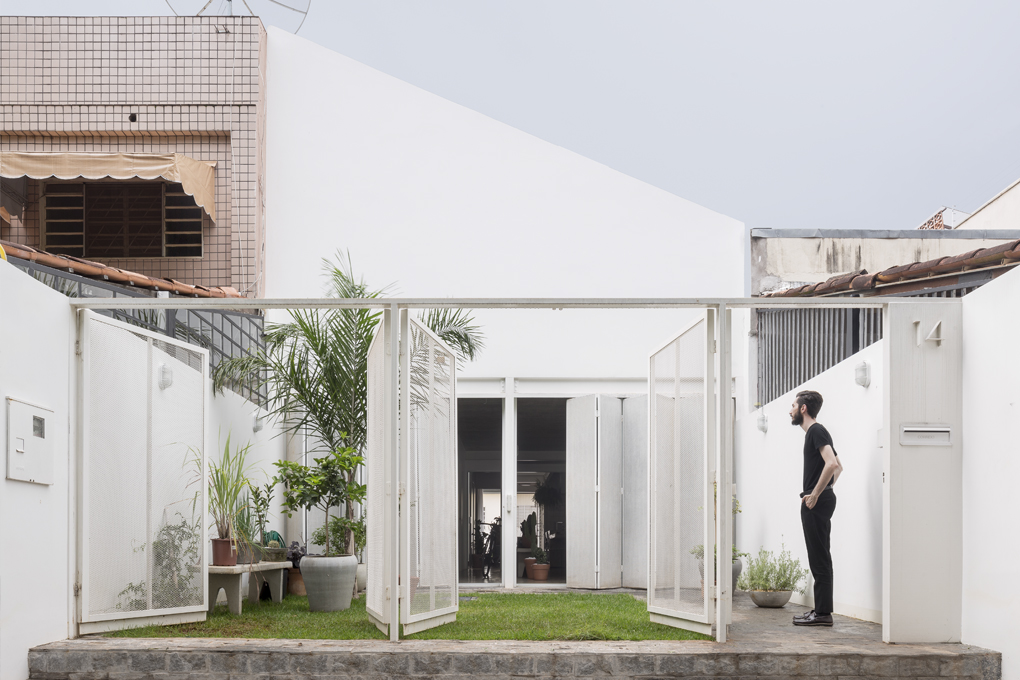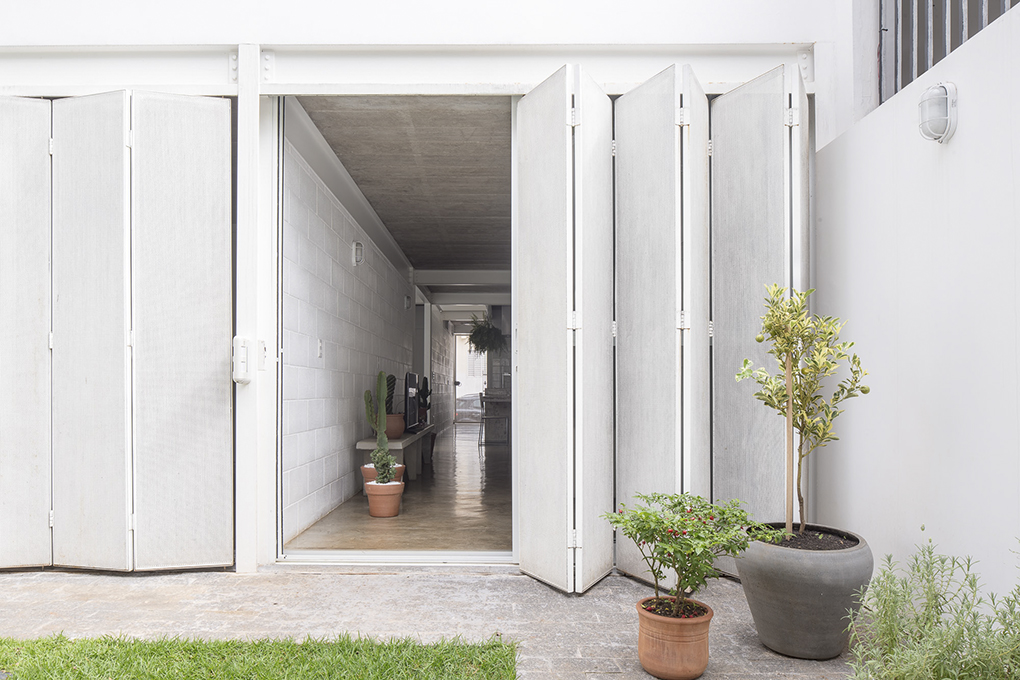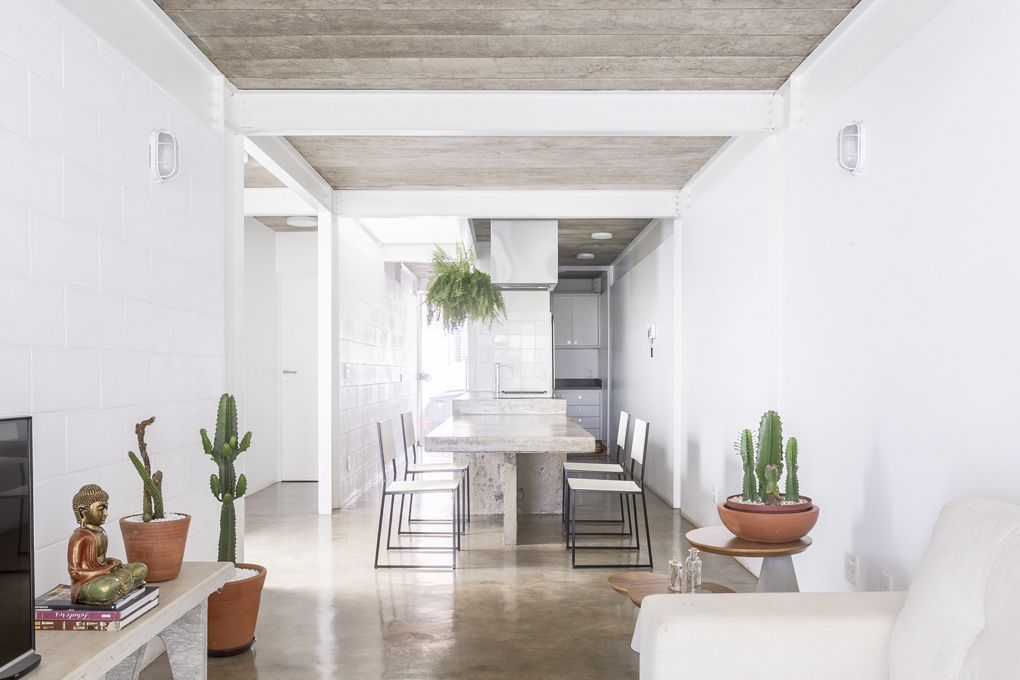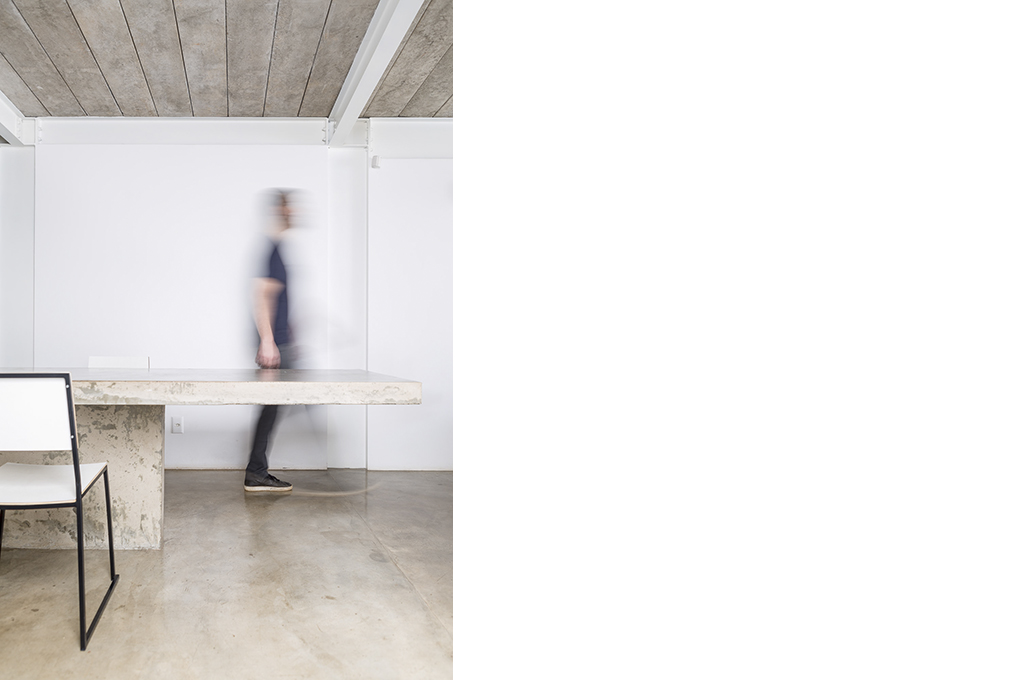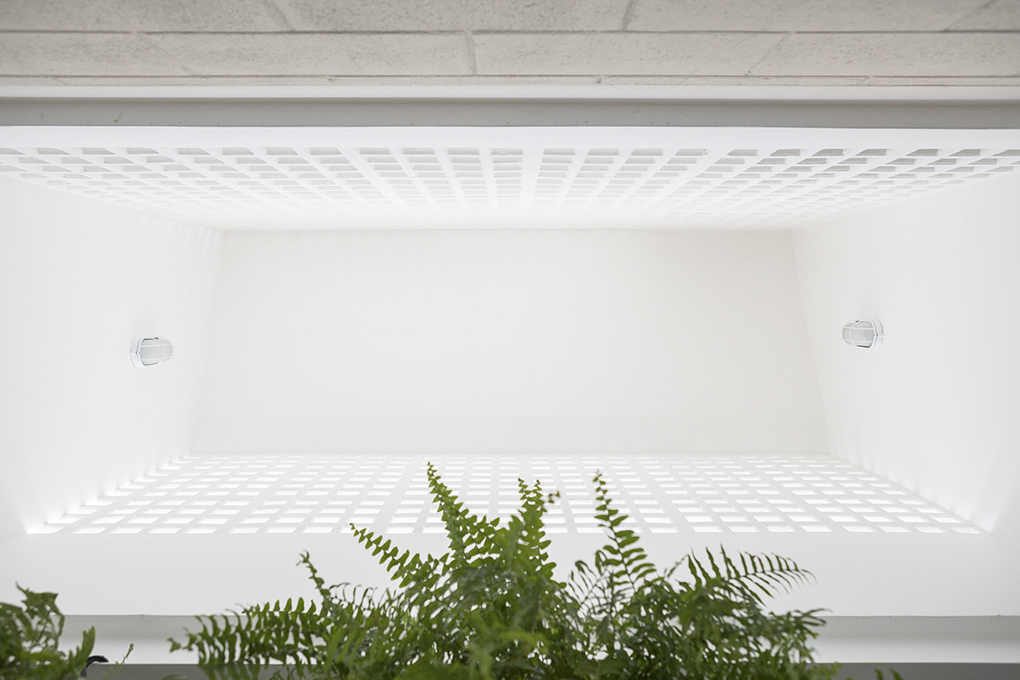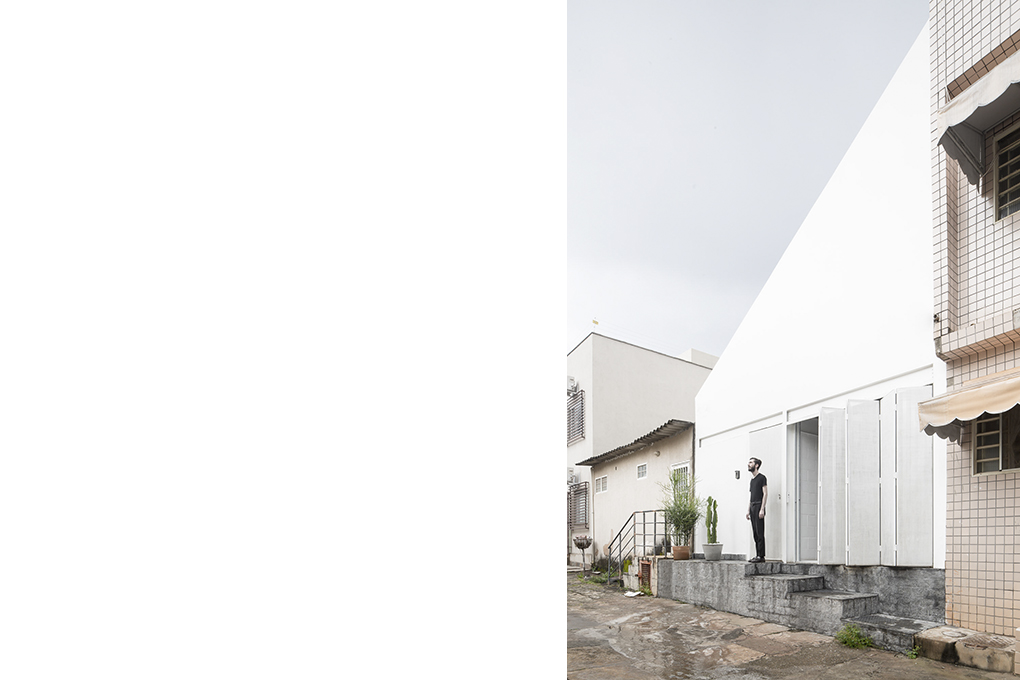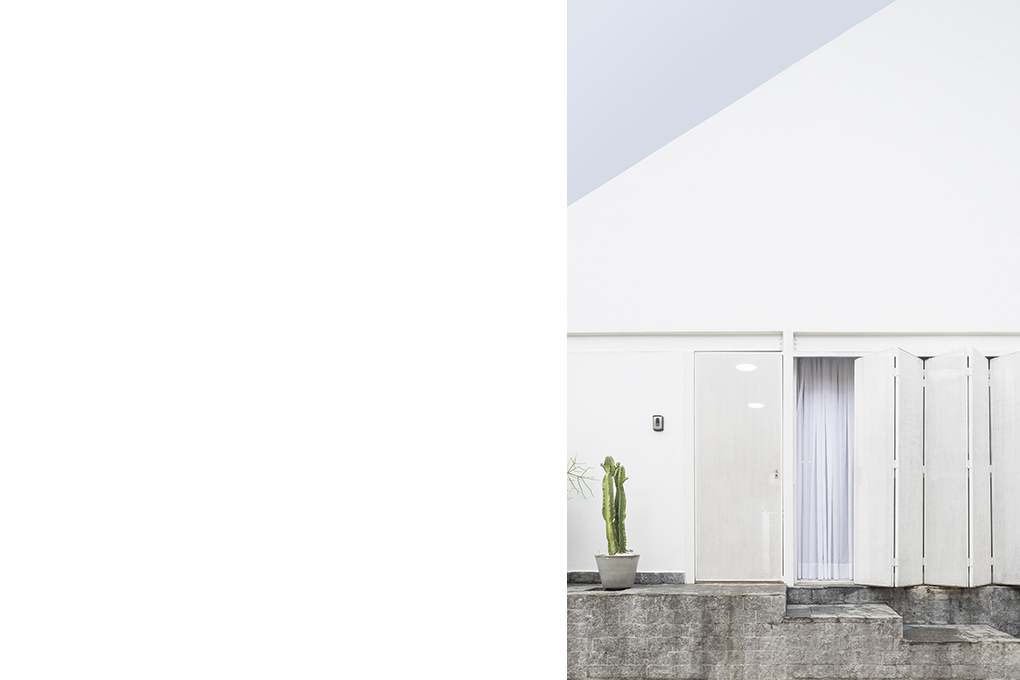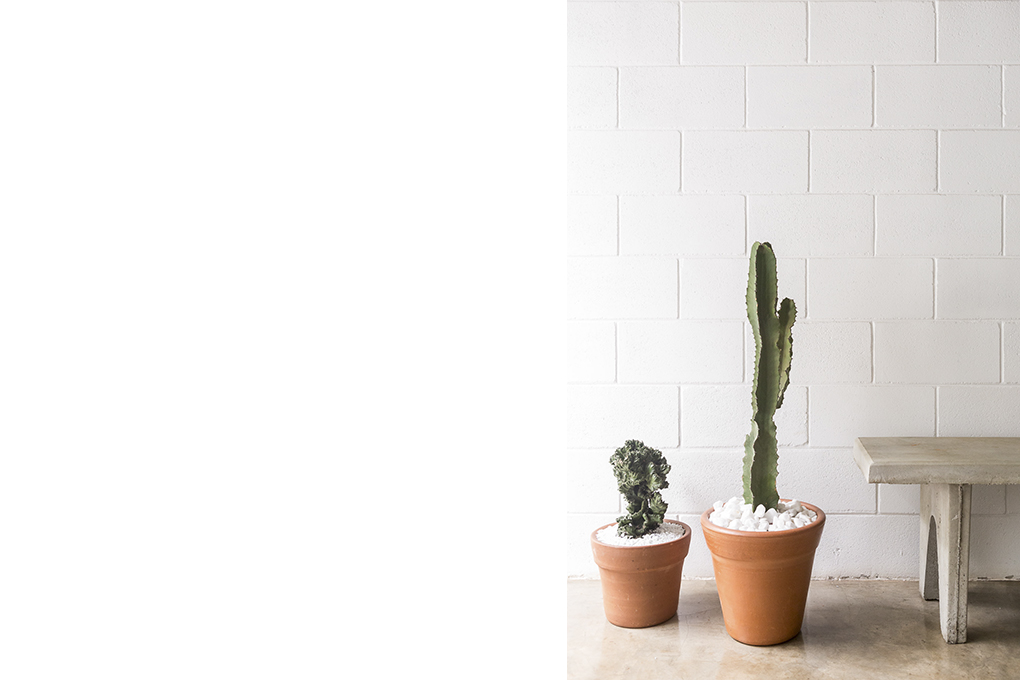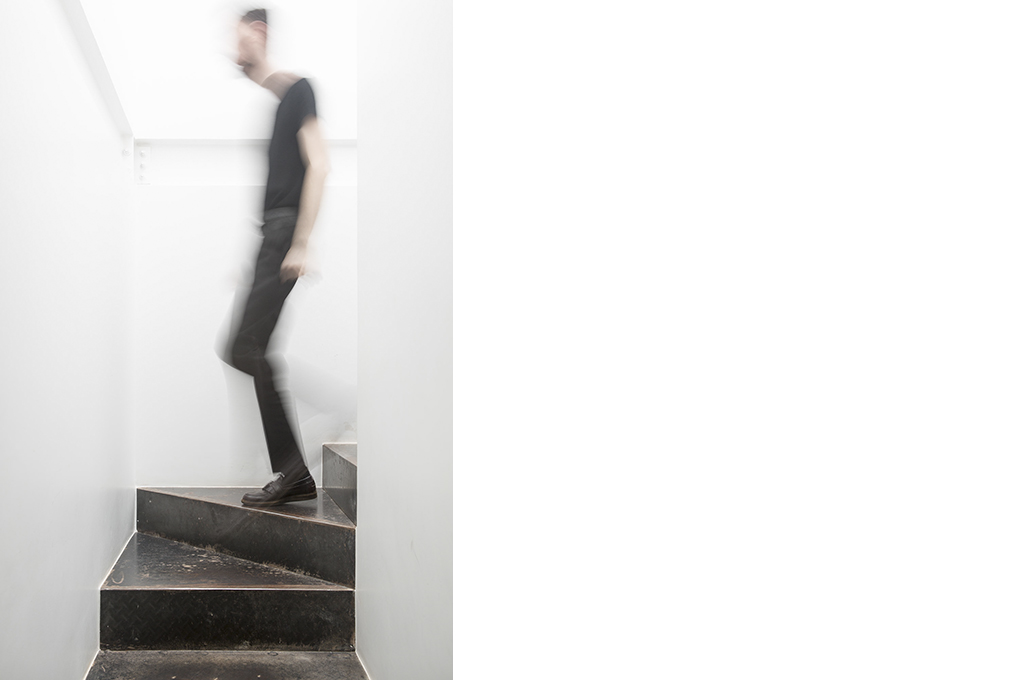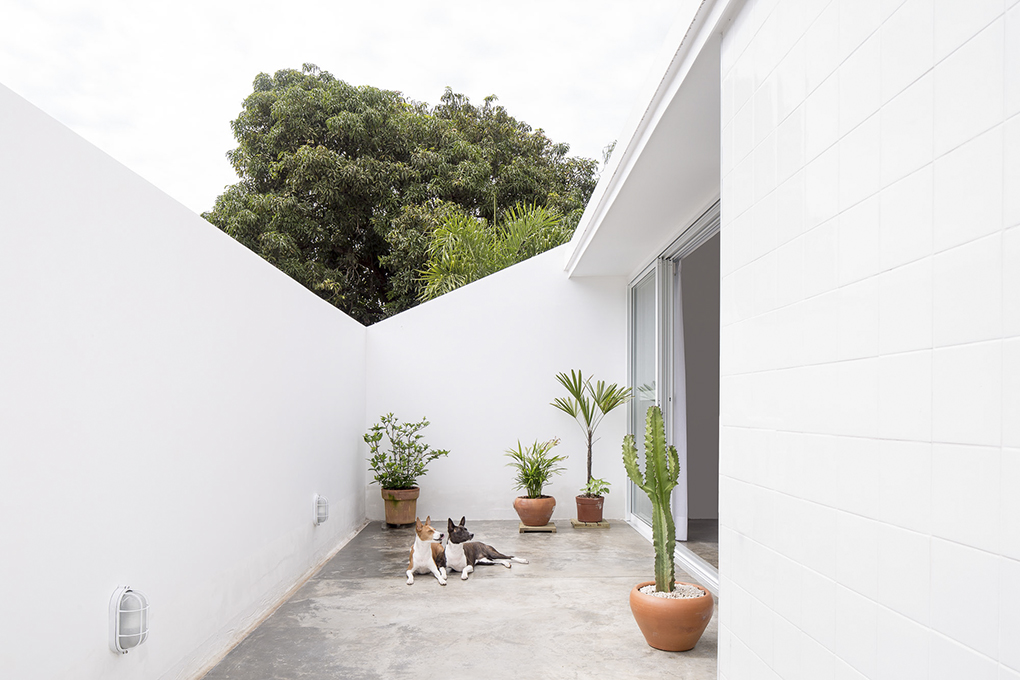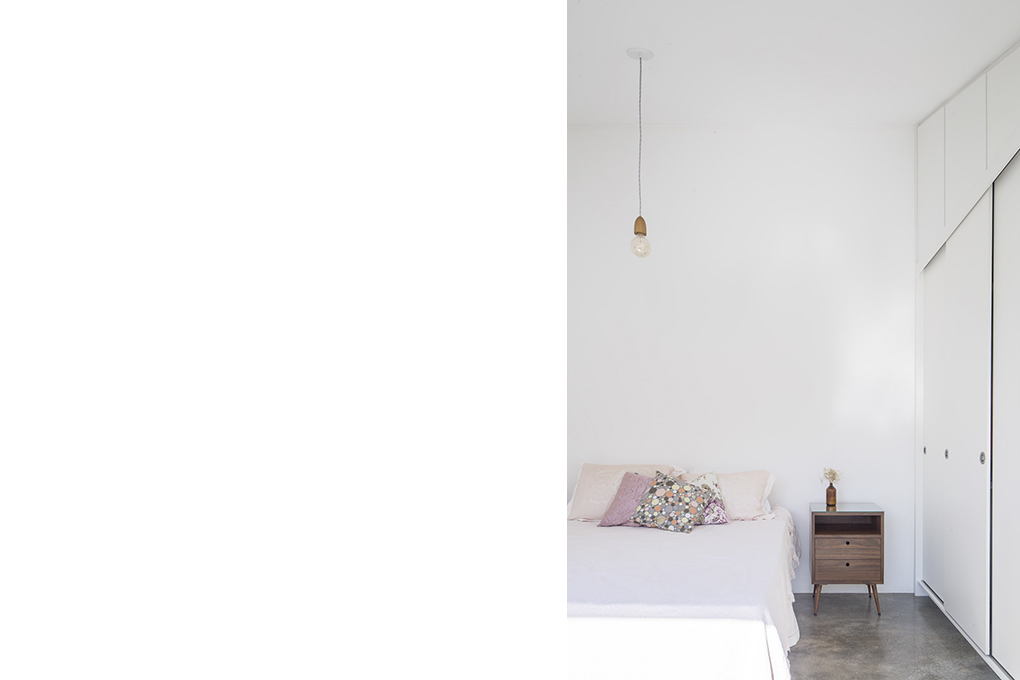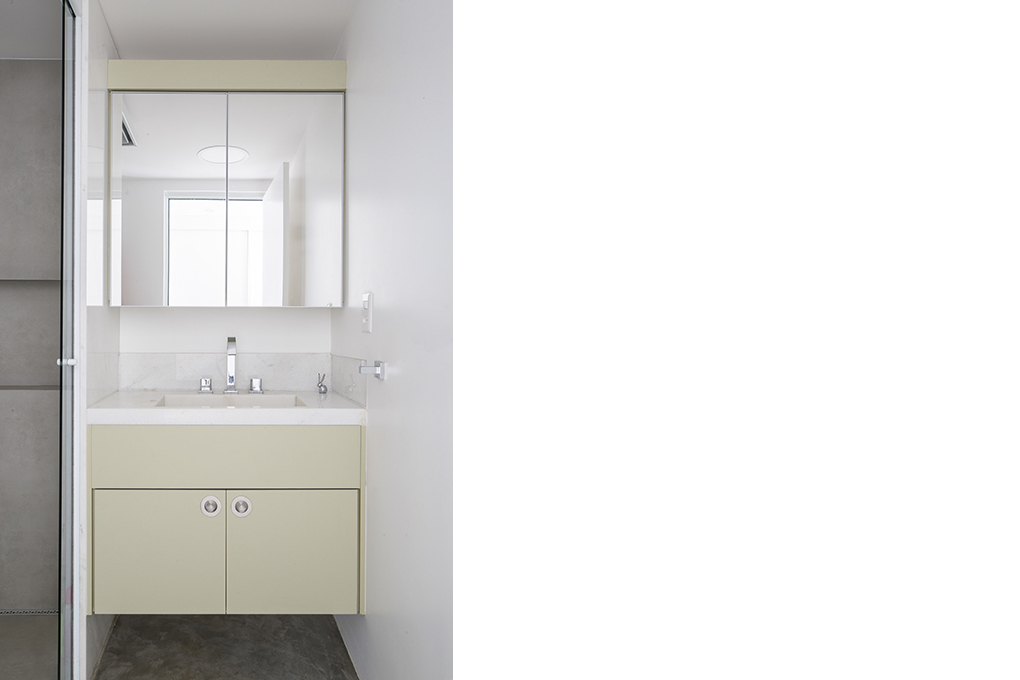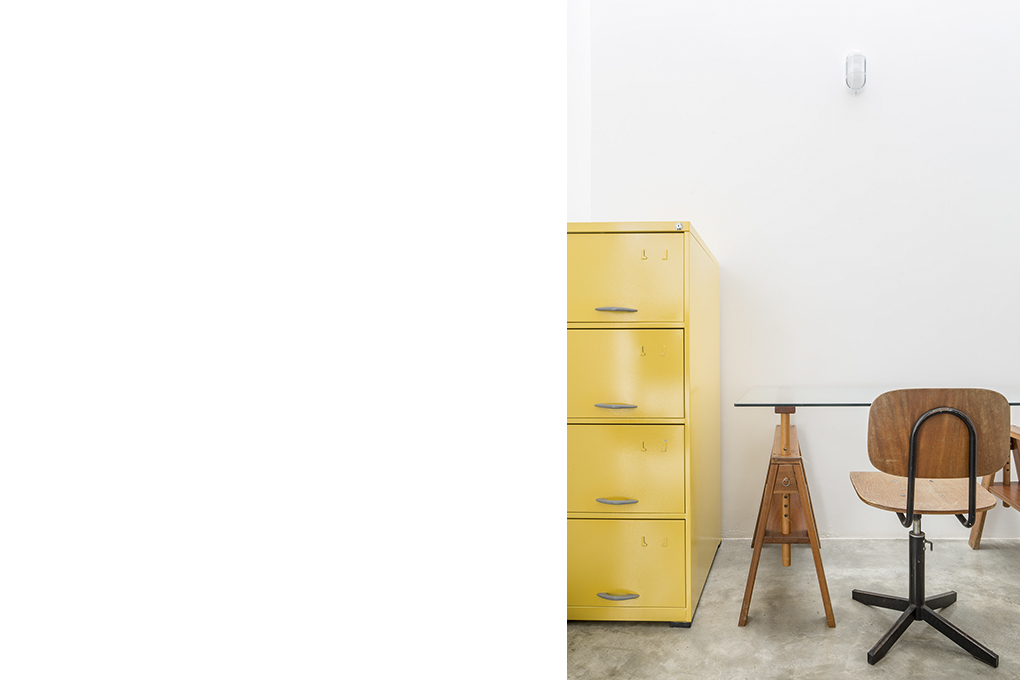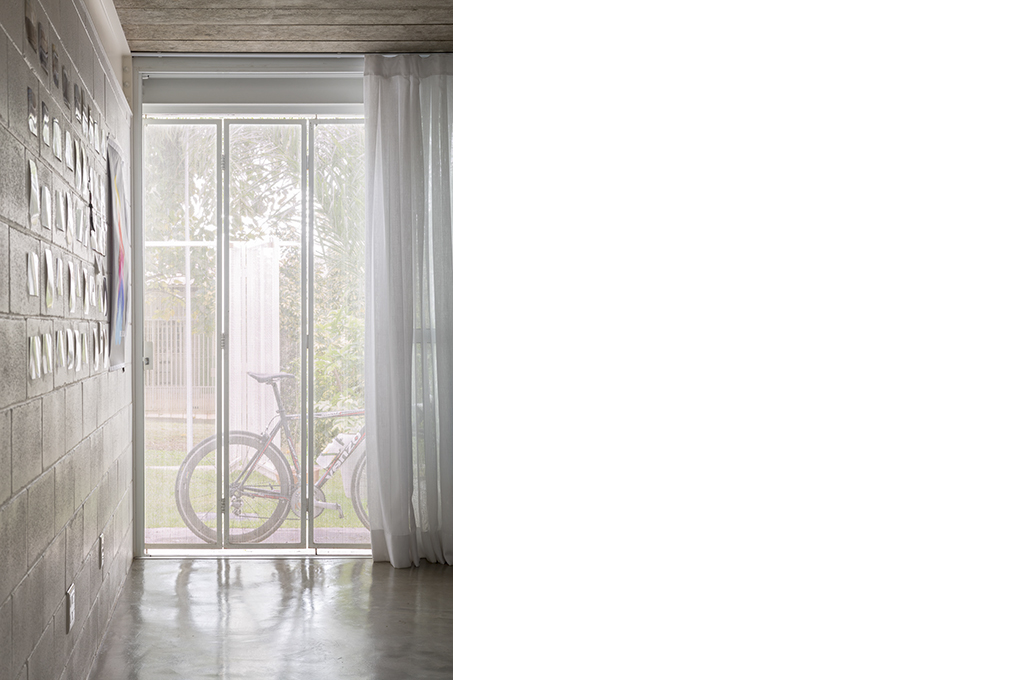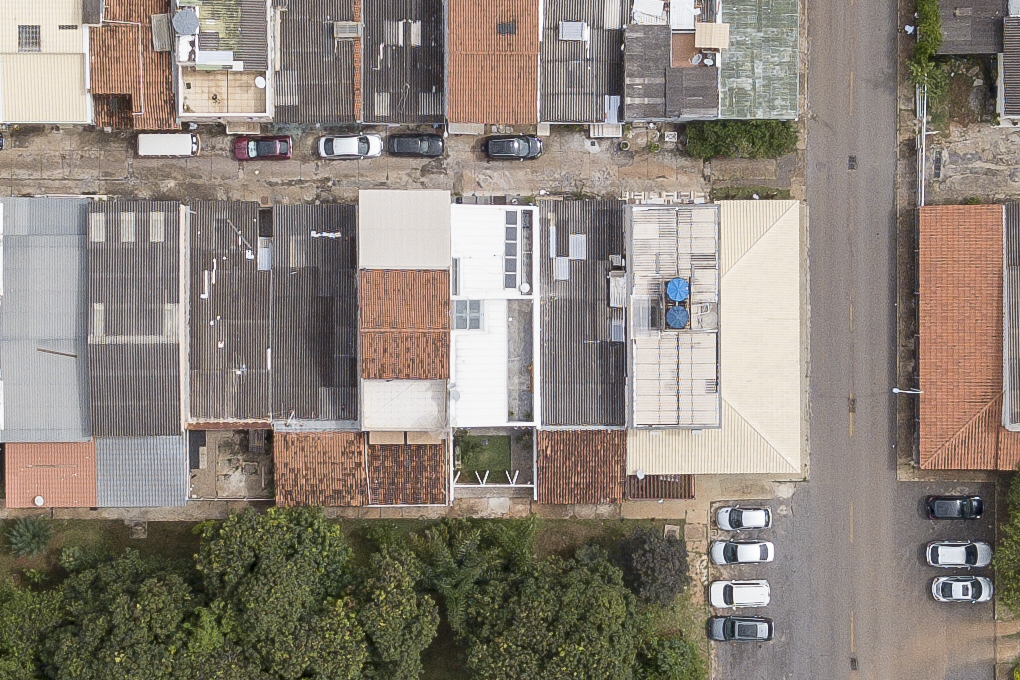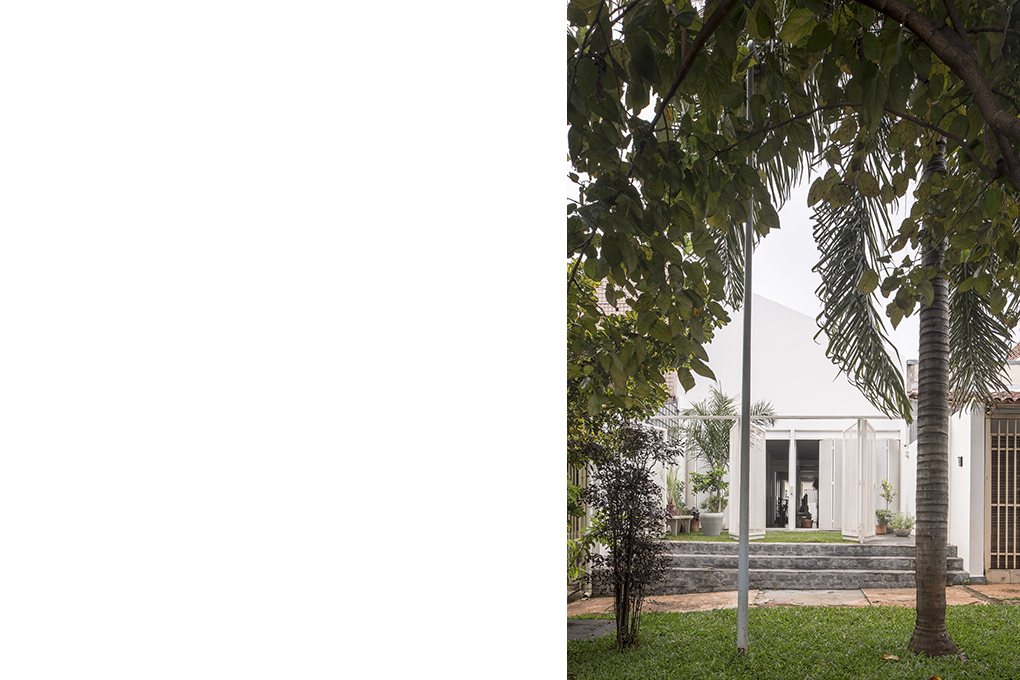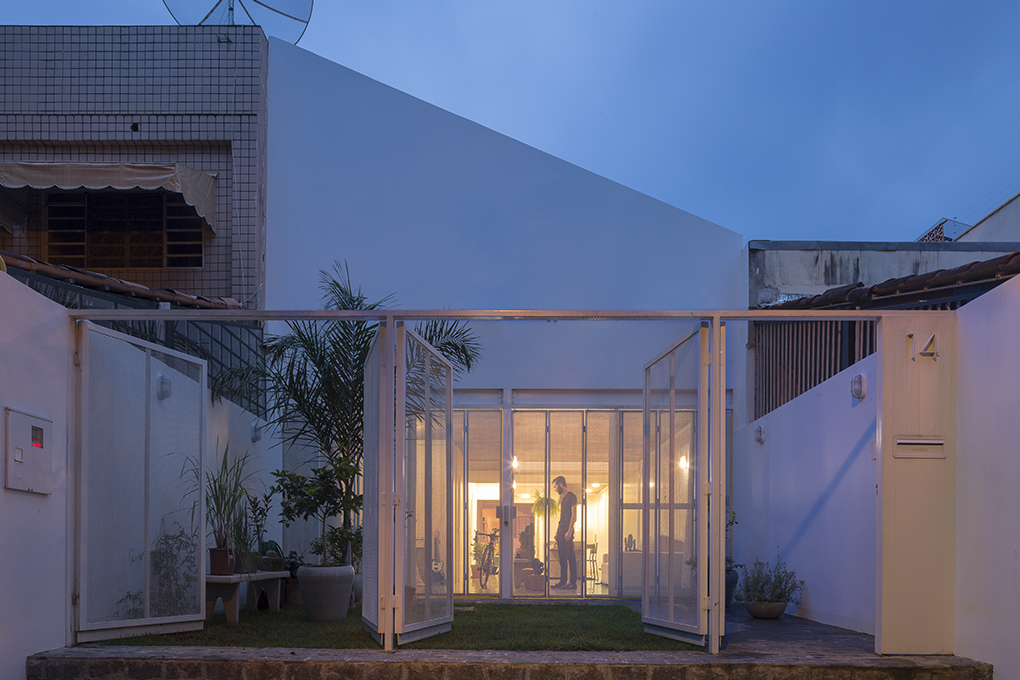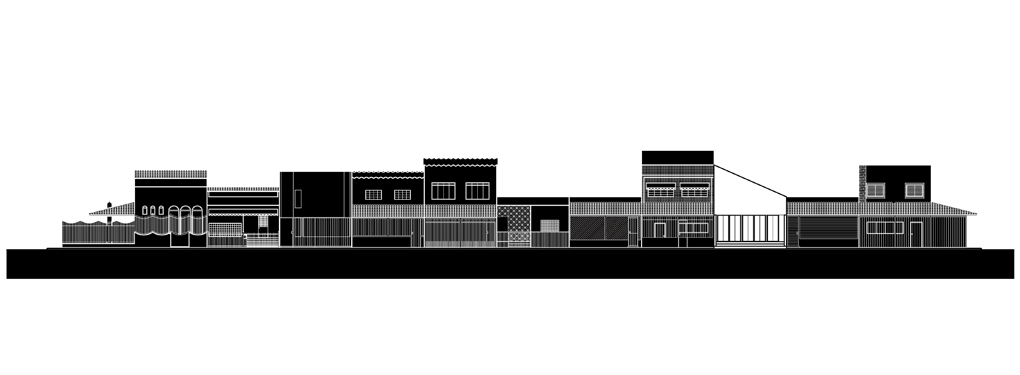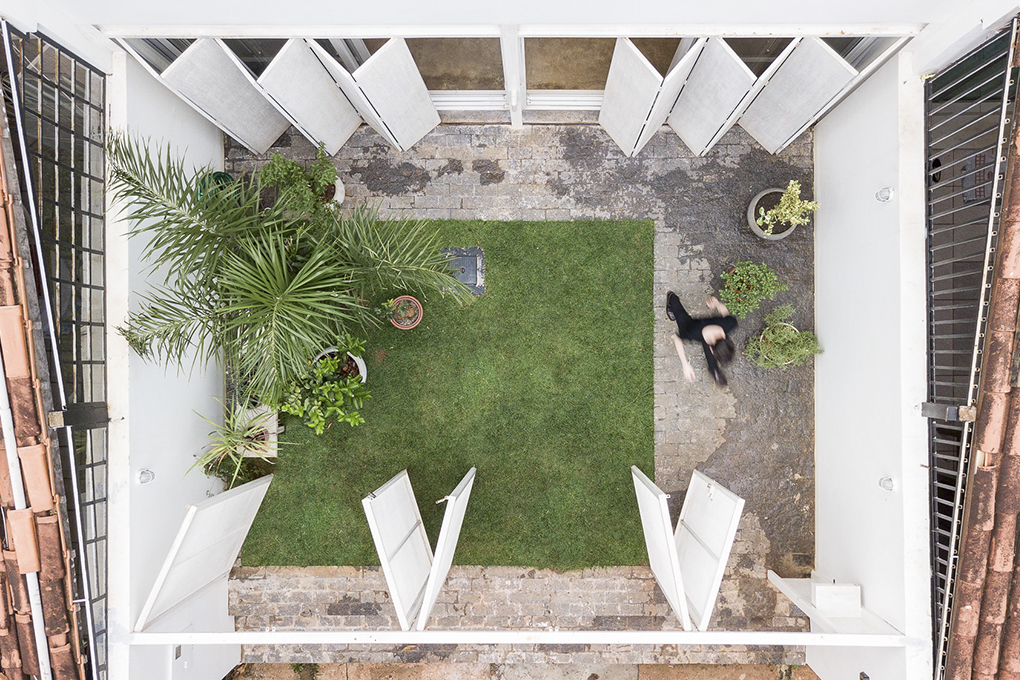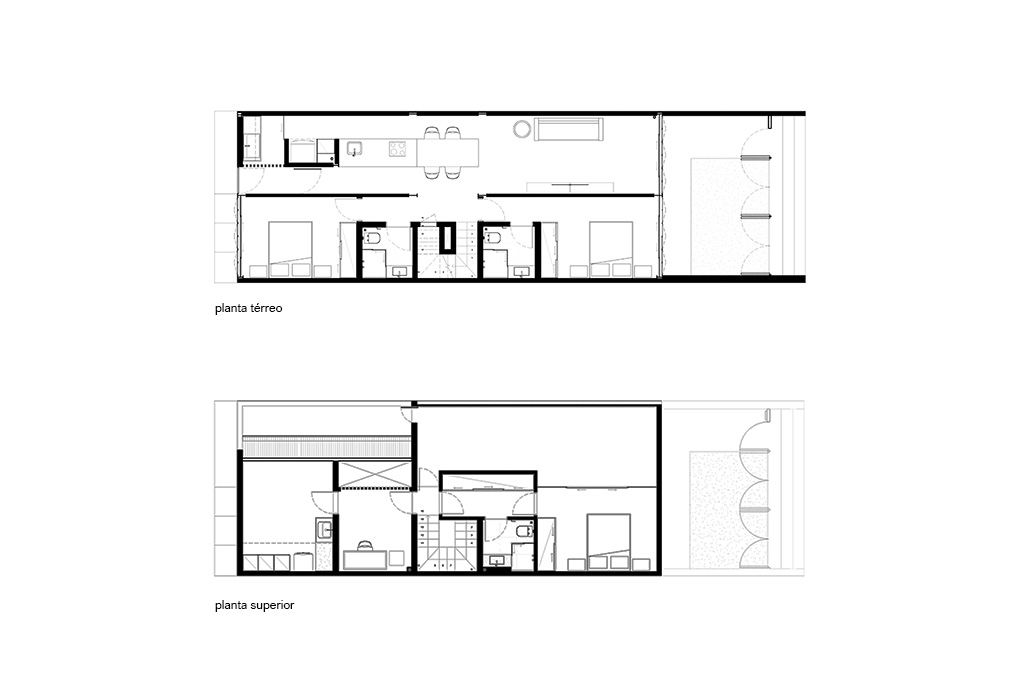711H House
BUILT
BRASÍLIA-DF, 2017
Finalist – Tomie Ohtake AkzoNobel Architectural Prize 2018
Awarded Honorable Mention at the Annual Awards of the Brazilian Institute of Architects in São Paulo (IAB-SP), 2018
The W3 is an avenue inside the protected area of the Plano Piloto in Brasília and has formerly been known as the main commercial street during the capital´s first years. The project that was finally developed and built for its west side differ from what was envisioned by Lucio Costa´s winning proposal for the Plano Piloto, which saw the area as an alternative for big plots of land for small farms and food production. The initial great demand for housing has pressed for changes in its uses and it was finally transformed in a area with different sizes of row houses with narrow service streets and wide green strips right in front.
Over time the decline of the commerce in the area together with the messy occupation in its residential plots has generated a landscape that is composed mostly by houses that exceed the maximum height limits besides covering and occupying their front yard and close themselves to the green public space, turning their front to the service streets. Therefore, the wide green public space in front of the houses is nowadays derelict, underused and potentially dangerous for pedestrians.
The project for the 711H House was designed for a young coulple with a kid and two small dogs. It aknowledges the present reality and its official and unofficial rules of occupation and aims to recover the activation of the green strip that is adjacent to the house by proposing a model that uncovers the front yard and transforms it into a green space that can be directly connected to the green public strip, also allowing for direct connection to the service street through the house itself.
A ground-floor existing house in the plot had most of its structure condemned, which has led to the decision of reusing only part of its foundations and the existing landfill. This also has defined the limits of the internal occupation, although all its uses were redefined. To alleviate the weight on the foundations, all the structure in the ground floor is made of laminated steel beams and columns. Here the structural concrete blocks are used only as partitions, while in the second floor it also works as structure, for reasons of cost. The form of the roof is generated by an imaginary line connecting the highest point that is officially allowed for the constructions in the neighborhood to the slighlty sloped roof of the construction on the other side, which defines a stepped wall with two roofs with different inclinations. Here the project aimed to create a patio that is only opened to the sky, taking advantage of the morning sun.
The wall that separate both has the maximum height that will be eventually aligned with the new construction on the side once the old house is replaced and therefore will keep the privacy of the upper patio.
Authors: Daniel Mangabeira, Henrique Coutinho and Matheus Seco
Colaboration: Fernando Longhi, Giovanni Cristofaro, Elisa Albuquerque
Built Surface: 140sqm
Project: 2016
Construction: 2016-2017
Structural Engineering: Vista Engenharia
Photos: Joana França
Contractor: Matriz Engenharia
711H House
BUILT
BRASÍLIA-DF, 2017
Finalist – Tomie Ohtake AkzoNobel Architectural Prize 2018
Awarded Honorable Mention at the Annual Awards of the Brazilian Institute of Architects in São Paulo (IAB-SP), 2018
The W3 is an avenue inside the protected area of the Plano Piloto in Brasília and has formerly been known as the main commercial street during the capital´s first years. The project that was finally developed and built for its west side differ from what was envisioned by Lucio Costa´s winning proposal for the Plano Piloto, which saw the area as an alternative for big plots of land for small farms and food production. The initial great demand for housing has pressed for changes in its uses and it was finally transformed in a area with different sizes of row houses with narrow service streets and wide green strips right in front.
Over time the decline of the commerce in the area together with the messy occupation in its residential plots has generated a landscape that is composed mostly by houses that exceed the maximum height limits besides covering and occupying their front yard and close themselves to the green public space, turning their front to the service streets. Therefore, the wide green public space in front of the houses is nowadays derelict, underused and potentially dangerous for pedestrians.
The project for the 711H House was designed for a young coulple with a kid and two small dogs. It aknowledges the present reality and its official and unofficial rules of occupation and aims to recover the activation of the green strip that is adjacent to the house by proposing a model that uncovers the front yard and transforms it into a green space that can be directly connected to the green public strip, also allowing for direct connection to the service street through the house itself.
A ground-floor existing house in the plot had most of its structure condemned, which has led to the decision of reusing only part of its foundations and the existing landfill. This also has defined the limits of the internal occupation, although all its uses were redefined. To alleviate the weight on the foundations, all the structure in the ground floor is made of laminated steel beams and columns. Here the structural concrete blocks are used only as partitions, while in the second floor it also works as structure, for reasons of cost. The form of the roof is generated by an imaginary line connecting the highest point that is officially allowed for the constructions in the neighborhood to the slighlty sloped roof of the construction on the other side, which defines a stepped wall with two roofs with different inclinations. Here the project aimed to create a patio that is only opened to the sky, taking advantage of the morning sun.
The wall that separate both has the maximum height that will be eventually aligned with the new construction on the side once the old house is replaced and therefore will keep the privacy of the upper patio.
Authors: Daniel Mangabeira, Henrique Coutinho and Matheus Seco
Colaboration: Fernando Longhi, Giovanni Cristofaro, Elisa Albuquerque
Built Surface: 140sqm
Project: 2016
Construction: 2016-2017
Structural Engineering: Vista Engenharia
Photos: Joana França
Contractor: Matriz Engenharia
